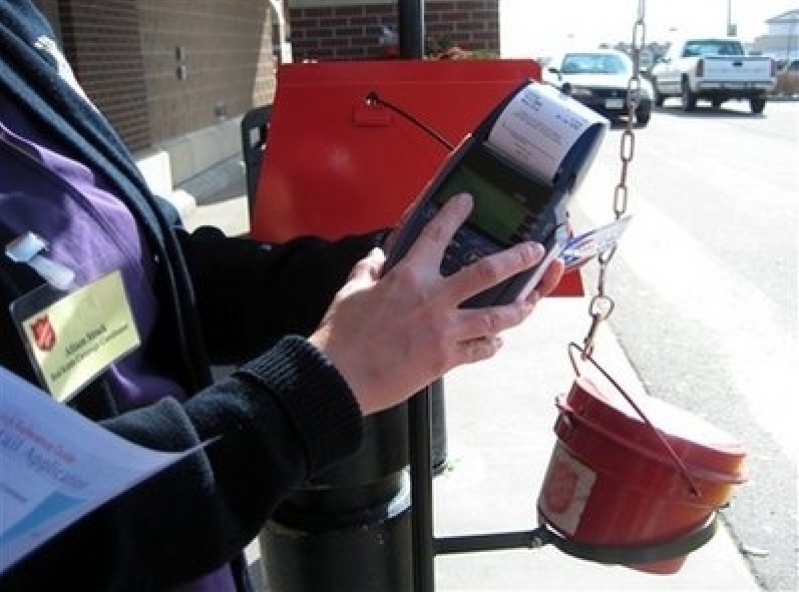
For the 118th time, The Salvation Army has kicked off its annual Red Kettle Christmas campaign. This year, however, may prove to be much different from years past with the implementation of modern day technologies.
In addition to making it possible for potential donors to contribute on its website, salvationarmyusa.org, or through a virtual red kettle on any number of corporate and individual websites as well as on Facebook pages, The Salvation Army this year has provided a way for people in more than 120 cities across the country to use their credit or debit card to make a donation to people in need.
After being tested in Dallas, Los Angeles, and Colorado Springs, The Salvation Army’s branded, electronic payment machines are making their widest debut to date at more than 300 Salvation Army Red Kettles across the nation.
“These electronic payment machines let everyone get into the charitable Christmas spirit even if they don't have quarters, dimes and nickels," said Major George Hood, The Salvation Army’s National Community Relations and Development Secretary, who acknowledged that more and more people are using credit and debit cards as a primary means for their retail transactions.
"Our local units are taking the initiative to meet donors wherever they are, and however they would choose to give, whether that be with a credit card, online, or in our traditional Red Kettles," he added.
According to the organization, average donations at the test markets last year rose from $2 to $15 when donors used the cashless option. Not only to the machines accept major credit cards and operate like any other electronic retail purchase, they also don’t store any personal information and provide donors a printed receipt for their tax deductible donation.
"The Salvation Army has long been known for being a very conservative, old-fashioned nonprofit organization," commented The Salvation Army's Ruth Ann Schoer to the Madison, Wisc.-area media site Channel3000. "But today we're going to come screaming into the 21st century."
With the addition of the new technologies, The Salvation Army is hoping to meet and exceed the record $130 million that last year’s Red Kettle Campaign had collected despite the economic downturn.
The oldest annual charitable fundraiser of its kind in the United States, the Red Kettle Campaign helps raise money for the needy in communities nationwide, providing toys for kids, coats for the homeless, food for the hungry and countless social service programs year-round.
As part of the campaign, more than 25,000 Salvation Army volunteers spread throughout the country to ring bells daily and solicit spare change donations to the iconic red kettles from holiday shoppers.
Among the 120 cities where electronic payment machines will be available this year are: Chicago, Dallas, Denver, Detroit, Las Vegas, Minneapolis, New York, Phoenix, Salt Lake City, San Antonio, San Diego, San Francisco, and Seattle.
According to The Salvation Amry, more cities are being added.







